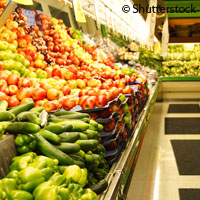Europeans put healthy food in research spotlight
What is healthy food and how can we make it innovative? How do we offer consumers the information they need/want about this type of food? Experts in Europe believe various forces exist that drive healthy food innovation, namely: science, research and development (R&D) innovation, individual health awareness and individual risk-benefit analysis. These conclusions were revealed at the recent Nutrevent conference in Lille, France, where the experts noted that nutritionists must pay particular attention to functional food innovations with natural compounds to help meet the growing concerns consumers have over healthy food. While a variety of innovative approaches were presented at Nutrevent, the EU regulation 'Health Claims', allowed by the EU regulation body European Food Safety Authority (EFSA), calls for: scientific assessment of health claims, changing management, and marketing of food products in the EU nutrition industry. The AFRESH ('Countering diet-related diseases through competitive regional food- and physical activity clusters') project, funded under the 'Regions of Knowledge' budget line of the EU's Seventh Framework Programme (FP7) to the tune of EUR 2.95 million, is establishing a research agenda for reducing diet- and physical inactivity-related diseases by developing innovative products to give sufferers the help they need. The AFRESH partners, from Belgium, France, Hungary, the Netherlands, Poland and the United Kingdom, are playing a key role in forging activities to build and improve healthy lifestyles for the future. AFRESH is part of the Food Cluster Initiative that aims to strengthen the EU food research area, and to boost the EU's competitive advantage. Speaking at the event and citing results generated by the FOODRISC project, Dr Monique Raats of the Food, Consumer Behaviour & Health Research Centre at the University of Surrey in the United Kingdom said food communication must strike a balance between benefit claims, risk alertness and general consumer information. FOODRISC ('Food Risk Communication. Perceptions and communication of food risks/benefits across Europe: development of effective communication strategies') is working to offer consumers the right information they need about food/risk benefit relationships. Funded under the 'Food, agriculture and fisheries, and biotechnology' (KBBE) Theme of FP7 with EUR 2.97 million, FOODRISC is filling the gaps along the food information chain. In another food development, scientists at Ghent University in Belgium found that people are highly concerned about the recent outbreak of the deadly enterohaemorrhagic E. coli (EHEC) bacteria, but governmental trust helps ease their fears and encourages people to continue eating fresh produce. The results are an outcome of the VEG-I-TRADE ('Impact of climate change and globalisation on safety of fresh produce governing a supply chain of uncompromised food sovereignty') project, which has clinched a EUR 6 million grant under the KBBE Theme of FP7. Questioning 6,132 participants in a newspaper survey in 2 Belgian newspaper websites (Het Laatste Nieuws and De Morgen), the researchers found that more than 65 % of readers are worried, 64.2 % believe the risk of contamination is high, 56 % are suspicious, 20 % are angry, and around 33 % are frightened. More than 31 % said they would cut their consumption of fresh produce, while 80 % plan to wash their fruits and vegetables better. Over 50 % believe they can prevent the risk from happening themselves. From a gender perspective, women are more worried than men. It should be noted that younger readers (under 35) were more concerned about the issue than their older peers (35 and over). Governmental trust was found to be strong for people under 24 and over 65. Those who have a low level trust of the government plan to eat less fresh produce. The researchers said the communication about what triggered the EHEC bacteria could significantly impact how people purchase and consume fresh produce.For more information, please visit: European Food Safety Authority (EFSA): http://www.efsa.europa.eu/(opens in new window) AFRESH: http://www.afresh-project.eu/(opens in new window) Food Cluster Initiative: http://www.foodclusterinitiative.eu/(opens in new window) FOODRISC: http://www.foodrisc.org/(opens in new window) Ghent University: http://www.ugent.be/en(opens in new window) Veg-i-Trade: http://www.veg-i-trade.org(opens in new window)
Countries
Belgium, France, Hungary, Netherlands, Poland, United Kingdom



